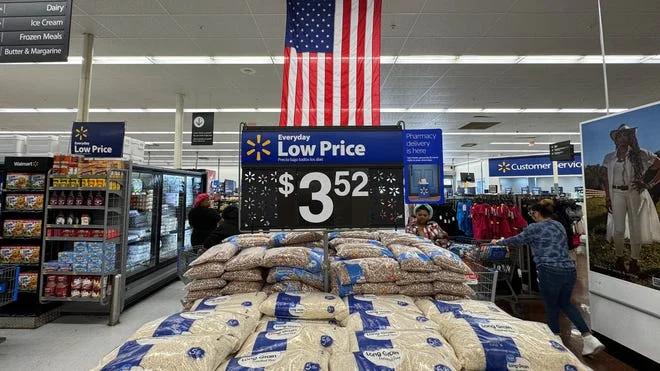
Is America on the Brink of an Economic Quake? Unpacking Trump’s Tariff Crisis
The escalating economic turmoil in the U.S. is raising urgent questions about the stability of American finances, and much of the blame seems to rest squarely on President Donald Trump's unpredictable tariff policies. As the nation braces for potential fallout, the question lingers: How will these economic maneuvers shape the future for American families and businesses?
Recent reports highlight the precarious state of the economy, suggesting we may be on the verge of a crisis that could dim the American Dream for generations. With stock markets trembling and the dollar weakening against other currencies, analysts warn of rare "capital flight" as investors question the viability of U.S. assets.
Letters to and from the Trump administration underscore the paradox of the current situation. Just last week, the President suggested his 145% tariffs on China might be eased, leading to slight market recoveries. Comments from Federal Reserve Chair Jerome Powell have drawn Trump’s ire, sparking concerns rife with instability as he oscillates between praise and threats against key economic leaders.
Economic experts have pointed out that while recessions typically see investors flocking towards Treasuries for security, the current climate has lead to significant selling off of U.S. bonds, marking a departure from historical patterns. This behavior signals a lack of confidence in economic stability and hints at a deeper systemic issue orchestrated by Trump’s erratic fiscal policies.
The extent of the tariff impacts can be likened to a lockdown, not of people, but of goods. Retail giants like Walmart and Target warn of potential shortages as escalating costs and disrupted supply chains emerge as they are forced to pass on increased expenses to consumers. This could usher in a return to empty shelves reminiscent of early pandemic-era panic buying.
Beyond immediate consumer goods, the ramifications of tariffs extend into the long-term future of American jobs. Economic reports estimate losses of up to 400,000 manufacturing jobs due to these trade restrictions, heightening anxiety in communities already reeling from economic shifts. Manufacturing leaders express concerns over dwindling orders and rising pessimism, with some fearing for the future of their businesses in the coming months.
With fears of inflation looming, the economic landscape continues to shift beneath American citizens. Disturbingly, the average citizen's perception of economic health has weakened, revealing a dip in consumer confidence as the administration’s second term progresses. The response to inflation and employment levels, crucial elements of economic policy, shall dictate the nation's recovery trajectory.
As the narrative surrounding Trump's tariffs intensifies, so does speculation about the wider implications for the U.S. in a global context. This evolving scenario calls to mind the era of the pandemic, where uncertainty reigned supreme, leaving many to ponder the sustainability of the American lifestyle.
If these tariff policies continue unchecked, we may see a seismic shift not just in financial markets but within the very fabric of American society itself. Maintaining dialogue on tariff reforms in Congress has become essential to reclaim stability and navigate the storm ahead.
What are your thoughts on the repercussions of these tariffs? Are you concerned about the future of the U.S. economy? Join the conversation by sharing your views below.